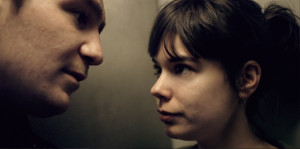 Missed Madison Film Festival
Missed Madison Film Festival
Victoria | Sebastian Schipper | Germany | 2015 | 138 minutes
Four Star | Madison Public Library | Netflix | GoWatchIt
Erik Oliver contemplates the contemporary long take and its audacious use in Sebastian Schipper’s Victoria.
On a visceral level, the long-take is irresistible. There’s something about watching a shot continue on and on, knowing the physicality and the performance that must be going into it, that’s undeniably thrilling. The long-take requires real effort and dedication, and on a metatextual level that makes it immediately satisfying to watch.
As commercial filmmakers seem less and less committed to using the tools of cinema to tell their stories (or, you might cynically say, as movies become more like television and television becomes more like movies), the long-take stands out as an actual form of artistry, a clearly cinematic tool of the type we don’t see much anymore. In the past two years especially, several directors have used it to great acclaim—Cary Fukunaga in True Detective, Ryan Coogler in Creed, and Alejandro Gonzalez Inarritu in both Birdman and The Revenant, among others.
The problem with long-takes is that, as technically impressive they may be, they’re just like any other tool—they don’t have any inherent value. And while they’re stylish on a surface level, they can easily be abused; just look at Birdman, Inarritu’s “one take” movie that uses Emmanuel Lubezki’s sweet, sweet cinematography to cover up its utter lack of substance.
With this in mind, it is interesting to look at a movie like Victoria, the new film by Sebastian Schipper. Over two hours long, the city-spanning crime film (of sorts) was shot in one take—apparently, they got it on the third try. It’s undoubtedly an impressive piece of filmmaking, especially because, unlike Birdman, which snuck in various cheats and playful time jumps, the long take in Victoria is the real deal.
Still, the question is tempting: what is Victoria without its central stylistic conceit? A really strong movie, it turns out.
Victoria follows the eponymous character, played by Laia Costa, an exchange student from Madrid staying in Berlin. We first meet her clubbing wildly in the not-even-that-early hours of the morning, and follow her as she befriends a group of Berlin bros who seem to have a liberal sense of car ownership. The night goes on, and Victoria, buffered by peer pressure, infatuation, and insufficient German skills, slowly gets entrenched in deeper and deeper trouble.
Victoria uses its setting smartly, as the constant mixing and blending of languages becomes just as disorienting as the rapidly unfolding crime story at its heart. For much of the film, Victoria really doesn’t know what Victoria has in store for her, and the universal subtitles serve as their own sort of Hitchcockian ticking bomb.
Victoria might not be able to pull off its main character’s naivete if it weren’t for Costa, who perfectly navigates the labyrinth of emotions the film takes her through. Costa radiates both a curious intelligence and a mischievous streak, while constantly reminding us that Victoria is ultimately just another girl, in way over her head. She’s also surrounded by strong performances from actors who manage to imbue their (sometimes lightly-sketched) characters with humor and three-dimensionality. By the end of Victoria, you feel like you know these people.
And then there’s the cinematography. Ultimately, after all, style is as integral a part of film as any other—indeed, it can be a key component if the filmmakers know how to use it. And Victoria knows how to use its style. Schipper’s (and cinematographer Sturla Brandth Grøvlen’s) long-take doesn’t quite have the flow or intricacy of an Emmanuel Lubezki joint, but it’s a powerful way to convey the rising nervy intensity of the story. The camera never becomes the focal point of the film; it just follows its characters in real time, yet always circles back to Victoria: who she is, how she feels, and ultimately, what she does.
The film may occasionally become dizzying in its constant instability and tonal shifts, but it always returns to that human core. From exuberant drunkenness to giddy flirtation to dawning horror to consuming desperation, Victoria perfectly captures the feel of that midnight high: dazzling, confusing, and, once the daze wears off, all too real.